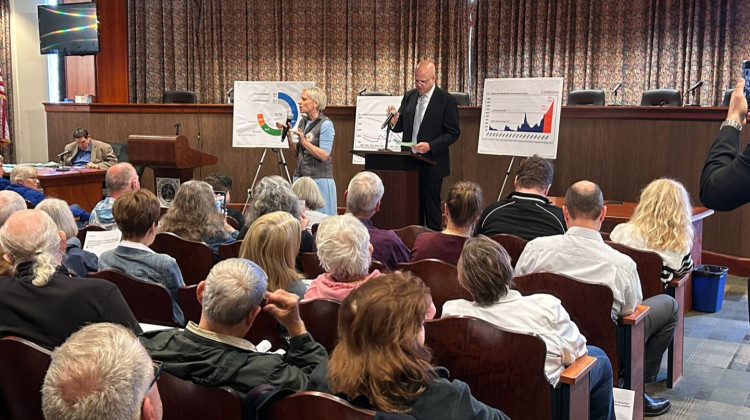Farmers officially don’t have to report toxic emissions from animal waste and other pollutants. On Tuesday, the Environmental Protection Agency solidified a rule on that after more than a decade of debate. It could have implications for Hoosiers living near confined animal feeding operations or CAFOs
On the surface, this doesn't change much. Since the rule was on hold, farmers weren’t required to report their emissions. Even before then, Indiana Farm Bureau National Goverment Relations Director Bob White says Indiana farmers rarely did it.
White says the EPA told farmers to guess their emissions based on what livestock they had and how many animals were on the farm.
“Depending on the size of your operation, you'll know whether you need to report or not — that's pretty vague," White says. "Oh by the way, if we decide you need to report and you haven’t, you’re going to be fined. I mean, that's not quite the way it's supposed to work."
Farm emissions also used to be partly regulated under Superfund — the same program that cleans up toxic waste sites.
While the EPA’s decision might be a relief for farmers, it takes away a playing card for environmentalists. Kim Ferraro is the senior staff attorney for the Hoosier Environmental Council. She says CAFOs can emit toxic ammonia and hydrogen sulfide.
“Citizens have brought citizen suits against CAFOs for failing to report and they’ve succeeded, so that is largely what this is in response to,” says Ferraro.
Ferraro says because of this change, there is now no federal law regulating air emissions from CAFOs.
Indiana Environmental reporting is supported by the Environmental Resilience Institute, an Indiana University Grand Challenge project developing Indiana-specific projections and informed responses to problems of environmental change.
 DONATE
DONATE








 Support WFYI. We can't do it without you.
Support WFYI. We can't do it without you.